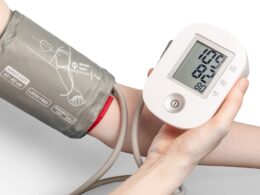Cholesterol isn’t all bad—especially when it comes to your brain. According to recent scientific findings, nearly a quarter of your body’s cholesterol resides inside your brain, where it powers memory, learning, and the constant chatter between nerve cells. While most folks worry about cholesterol clogging arteries, researchers say the situation inside your head is more nuanced.
Here’s the twist: The cholesterol in your blood and the cholesterol in your brain are two separate entities. Blood cholesterol, particularly the infamous low-density lipoprotein (LDL), can gum up blood vessels and choke off oxygen delivery—not just to your heart, but also to your brain. Over time, that raises the risk of strokes and cognitive decline. But brain cholesterol operates differently. It acts as a sort of “bridge” between nerve cells; if levels drop too low, those bridges weaken, and memory can start to slip. Scientists have even linked imbalances in brain cholesterol to neurodegenerative conditions like Alzheimer’s and Parkinson’s disease.
Blood vs. Brain: A Delicate Balance
While it’s true that high LDL in the bloodstream is bad news for your vascular health, research has revealed a surprising wrinkle: In older adults, slightly higher overall cholesterol sometimes seems to offer a protective effect for cognition. It’s not a green light to ignore your numbers, but rather a reminder that context matters—a lot.
For years, people fretted that statins (the go-to drugs for lowering blood cholesterol) might mess with memory. Early anecdotes fueled headlines and hesitancy. However, recent large-scale studies have now put those fears to rest in 2025. The evidence shows statins do not cause dementia or lasting changes in how the brain works. In fact, by controlling high LDL and reducing stroke risk, they may actually help prevent certain forms of memory loss tied to poor circulation—like vascular dementia.
So what does this all mean? Your brain does need cholesterol—just not from your breakfast plate or bloodstream. The key is maintaining healthy levels on both fronts: protecting your arteries with smart lifestyle choices and medications when needed, while also supporting overall brain health through diet, exercise, and regular check-ups.










